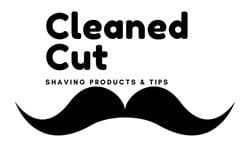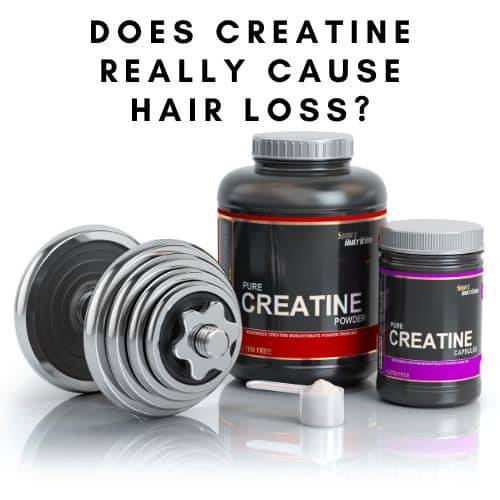If you’re a fitness enthusiast, you may have heard that creatine can cause hair loss. As you may already know, creatine is a popular supplement used by athletes and bodybuilders in order to improve performance and build muscle. While it’s a widely used supplement, many people worry about the potential side effects. So, does creatine really cause hair loss?
Read on to dive in or use the table of contents to skip to a section.
What is Creatine?
Creatine is a substance produced naturally by the body and found in certain foods, such as red meat and fish. It’s also available as an over-the-counter supplement. It’s a popular supplement because it can help improve physical performance and build muscle.
Creatine is made up of three amino acids: arginine, glycine, and methionine. It’s converted into a form of energy called phosphocreatine, which is stored in the muscle cells and used to provide energy during exercise. It can help delay fatigue during intense physical activity and improve muscle strength.
These types of supplements are most commonly used by athletes and bodybuilders, but it can also be used by anyone looking to improve their physical performance. It’s important to note that creatine is generally considered safe, but it can cause some side effects, such as nausea, stomach cramps, and dehydration.
Does Creatine Cause Hair Loss?
There are many rumors circulating about creatine and its potential to cause hair loss. While some people claim that it’s true, there is no scientific evidence to support this claim. In fact, there is no evidence that creatine has any effect on hair loss whatsoever.
However, some people have experienced hair loss while taking creatine. This could be due to other factors, such as dehydration, malnutrition, or stress. It’s also possible that a person’s genes may have something to do with it.
It’s important to note that the amount of creatine you take can also affect your hair loss. Taking too much creatine can lead to dehydration, which can contribute to hair loss. It’s best to follow the recommended dosage when taking supplements.
The Science Behind Creatine and Hair Loss
The main reason why creatine is not associated with hair loss is that it does not affect the hormones responsible for hair growth. Creatine does not affect the production of Dihydrotestosterone (DHT), which is the hormone responsible for hair loss.
In addition, creatine does not interfere with the absorption of other nutrients, such as iron and zinc, which are necessary for healthy hair growth. There have been no studies that have linked creatine to hair loss.
Potential Causes of Hair Loss
While creatine is not linked to hair loss, there are other factors that can contribute to it. These include genetics, stress, certain medications, and medical conditions.
Genetics are the most likely culprit of hair loss. If you have a family history of hair loss, you are more likely to experience it. Stress can also contribute to hair loss, as it can cause your hair follicles to shrink, leading to a decrease in the production of new hair.
Certain medications, such as those used to treat depression, high blood pressure, and arthritis, can also contribute to hair loss. Lastly, certain medical conditions, such as thyroid disease, lupus, and anemia, can also lead to hair loss.
Can You Prevent Hair Loss?
Maintaining a healthy lifestyle will help you maintain your gorgeous hair. Eating a balanced diet, getting enough sleep, and avoiding stress can all help to promote healthy hair growth.
It’s also important to use proper hair care products. Avoid using harsh chemicals and opt for natural, organic products instead. Also, opt for gentler products when washing your hair.
Tips for Maintaining Healthy Hair
In addition to a healthy lifestyle and proper hair care products, there are some other tips that can help you maintain healthy hair.
- Limit your use of heat-styling tools, such as curling irons and blow dryers.
- Use a wide-toothed comb to detangle your hair. This will help prevent breakage and keep your hair looking healthy.
- Avoid using harsh chemicals, such as hair dyes and styling products.
- Make sure to get regular trims. This will help keep your hair healthy and prevent split ends.
Popular Supplements for Hair Growth
If you’re looking for a supplement to help with hair growth, there are some popular options available. Biotin, for example, is a B vitamin that can help strengthen hair and nails. It can also help thicken and darken hair.
Vitamin C is also a popular supplement for hair growth. It helps promote collagen production, which is essential for healthy hair. Alternatively, you could opt for a product like Viviscal Men’s Hair Growth Supplement that is formulated for the purpose of hair growth.
Two other popular supplements for hair growth are iron and zinc. Iron helps carry oxygen to the hair follicles, while zinc helps the body absorb other nutrients, such as vitamin A, which is essential for healthy hair.
Takeaway
There is no solid evidence that taking creatine supplements will contribute to hair loss. However, if you’re taking creatine and experiencing hair loss, it’s best to speak to your doctor to rule out any underlying medical conditions or other potential causes.
Maintaining a healthy lifestyle, using proper hair care products, and taking certain supplements can all help to promote healthy hair growth. Ultimately, it’s important to do what works best for your individual needs.



